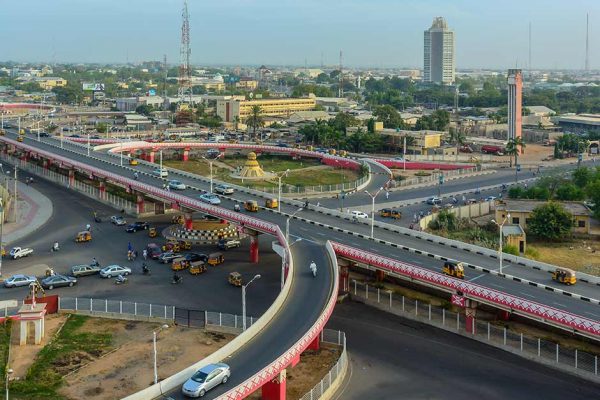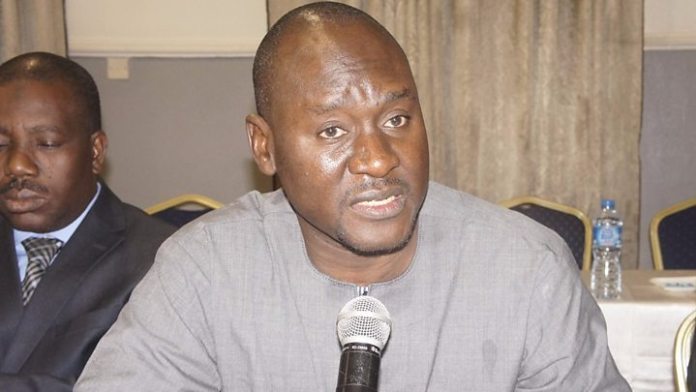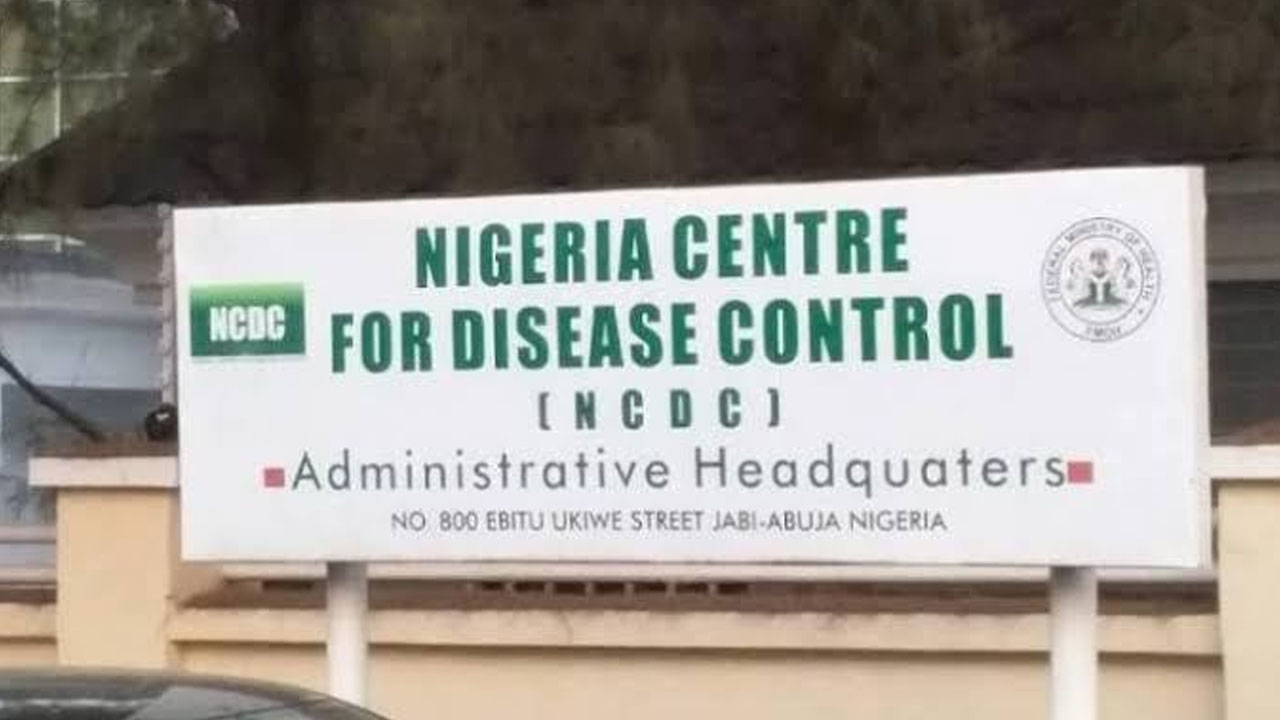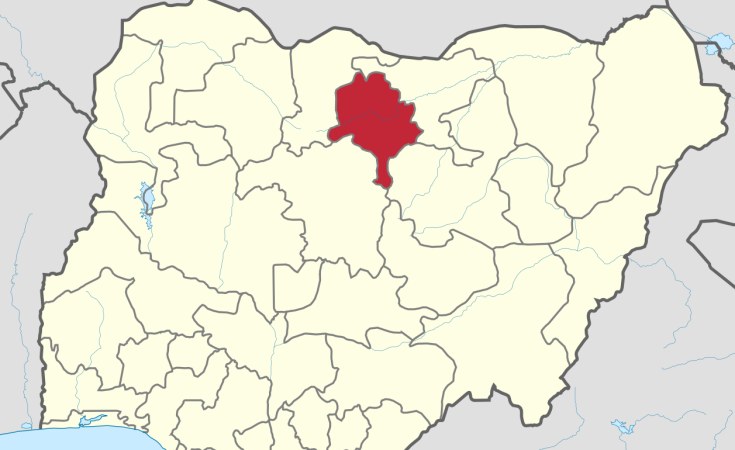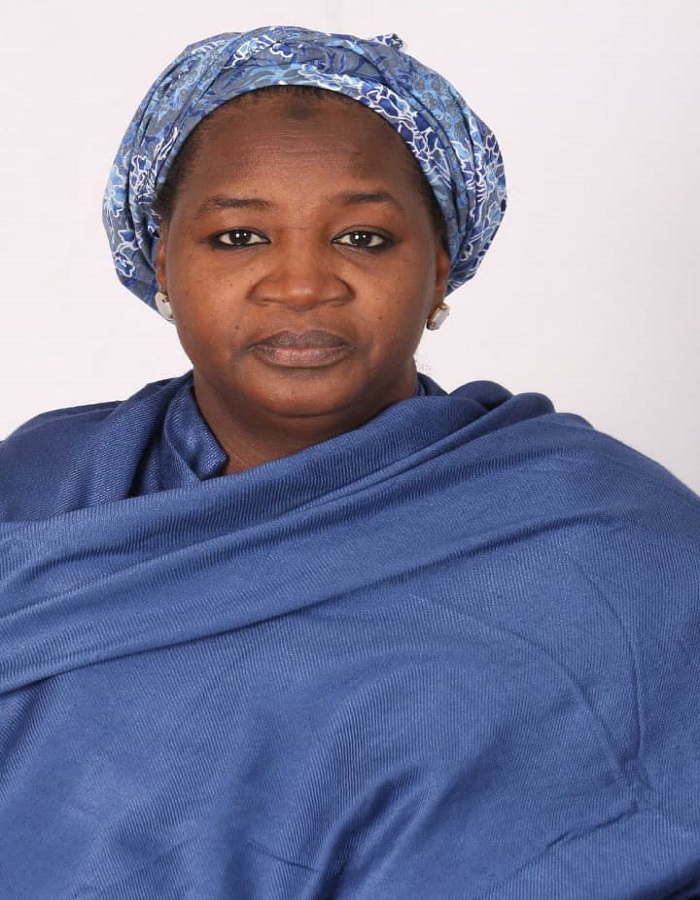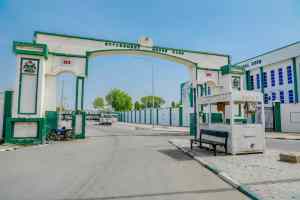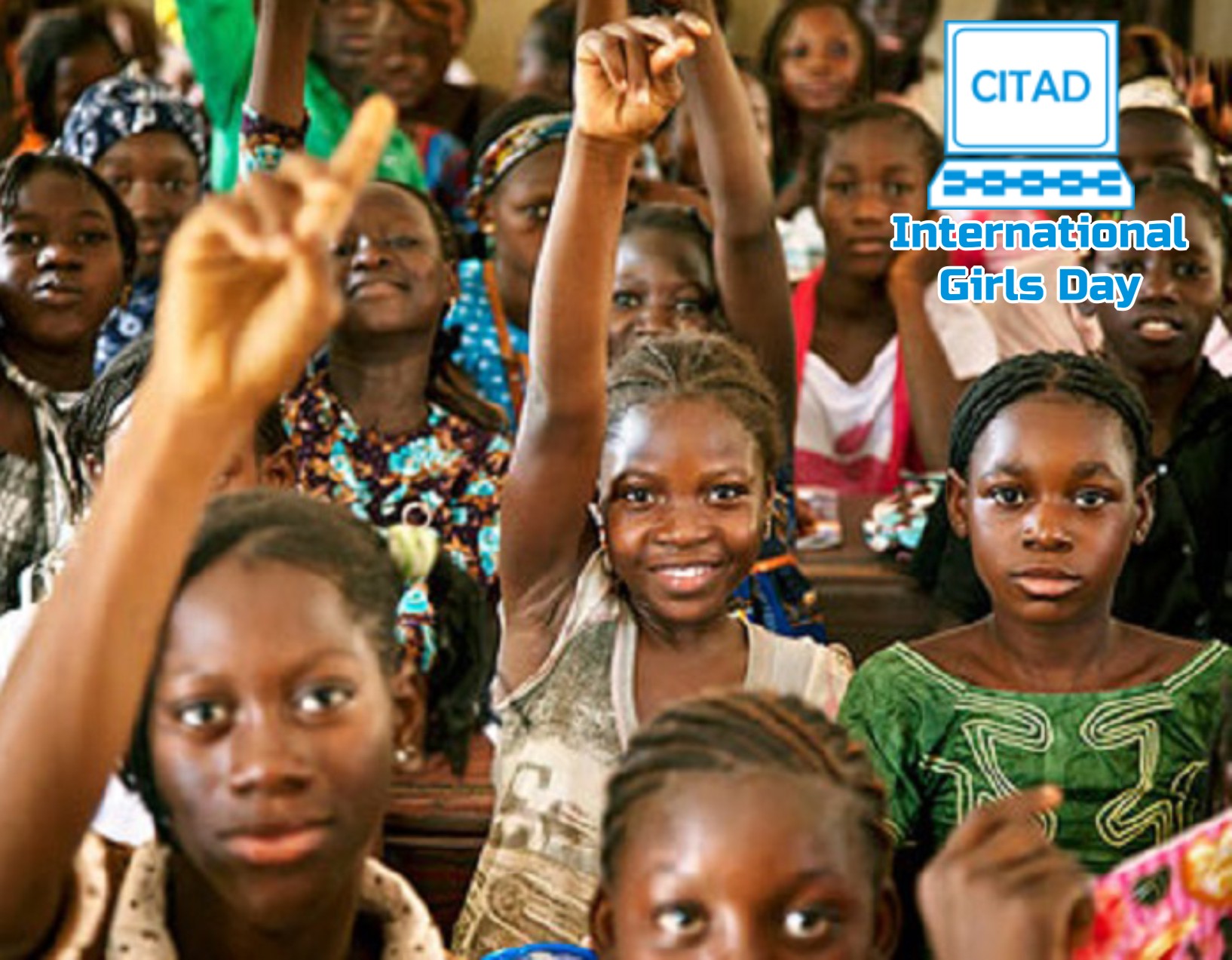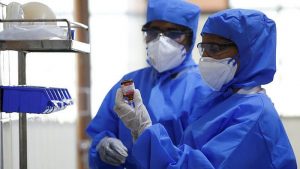Following the outbreak of COVID-19 pandemic in Wuhan, China, many people were killed and various countries of the world were threatened. On 27th February, 2020 first index case of Covid-19 was reported in Nigeria, following entry of an Italian man into the country from Italy. Some months after, many cases were reported especially in Lagos, Abuja, the capital city and later on across the country. This has informed several political, economic, Social and corporate actions including the locking down of some states and radical modification of the political-economy of the country to reflect the new realities.
Various intervention funds were pronounced by the Federal and States governments to fight the pandemic and reduce its effects on citizens. Also, corporate organizations and individuals have donated generously to the cause of fighting the pandemic and assisting states to provide medical response to the Virus. It was reported that over 40 billion Naira was donated. This excludes other non-monetary donations such as food items, building isolation centers and others, and the stimulus promised by the Central bank of Nigeria for corporate organizations. Unfortunately, much of the palliative packages have not reached majority of those for whom they were intended. In view of this, the Centre for Information Technology and Development (CITAD) on 21st April, 2020 organized a twitter chat with Prof. Jibrin Ibrahim, Senior Fellow at the Centre for Democracy and Development (CDD West Africa) as a discussant to assess and discuss on FG’s palliative measures and their implementation
Prof. Jibrin Ibrahim started the discussion by saying that Palliative measures are very necessary as physical distancing rules have led to confinement of people in their houses. Most poor Nigerians however depend on informal jobs which requires them to go out daily to fetch what they will feed their families. If they are to stay at home, Government has to feed them. This generates lot of questions from the people, below are tweets and responses from the guest: @YZYau welcome the indefatigable scholar and pundit, our discussant for today’s chat Prof. @jibrinibrahim17 to the discussion on FG’s palliative measures and their implementation@a_sabo
Thank you very much for joining us Prof. @JibrinIbrahim17 do you have any more fear or concern recognizing the fact that number of the confirmed cases of #COVID19 in Nigeria keeps rising, which means the lockdown may be elongated.
Response
Yes community infection is growing and case load rising so the temptation is to extend lockdown. That may not work. We need to increase testing. Ghano – 68,000, South Africa – 100,000, Nigeria less than 10,000 – too low. Increased testing means you lockdown where you need to only.
This means we can be more intelligent and have lockdowns only in spaces where the testing has shown growth of the disease. Other areas therefore can be allowed to resume normal life so people can earn money to feed families.
Prof. @JibrinIbrahim17, how do see the formation of the Nigerian government’s palliative measures, how realistic are they in terms of providing real succor to the common man?
Response
Palliative measures are very necessary as physical distancing rules have led to restriction of people in their houses. Most poor Nigerians however depend on going our each day to work and feed families on the basis daily income. If they are to stay at home, Govt has to feed them.
Nigeria ranks 158st of 189 countries in the (2018) Human Development Index (HDI). For the past decade, about 42.8 percent of Nigeria’s population lives in extreme poverty. This means palliative measures must reach at least 90 million Nigerians. This is difficult.
Nigeria’s palliative measures are based on 2.6 million households containing a total of 11,045,537 people on the national social register. This means that only about 15% of the poorest are on the register so many will be excluded.
Question:
Does that mean a whole lot of Nigerians will not be touched by palliative measures? Probably more than 15% on the register?
Response
Nigerian ruling class should be careful in their own interest. If the poor do not get palliatives, they will react and it will not be pretty. Social revolt is a real possibility because the lockdown without palliatives presents 2 options – HUNGER or REVOLT
Response
This revolt you re talking about, I think will never happen because Nigerian ruling class to maintain their own interest, they employ social institution as weapons against poor Nigerians.
And they can always tactically deploy narratives hinged on religion and ethnicity to divide and conquer d people. U no they don’t often tell us how they intend to fix d issues in clear terms bt how a certain tribe should not be voted or trusted.
Yes, they organised our religion to provides a similar function to convince us based on fictional divine sanction.
Question: many countries of the world have started thinking of economic recovery after COVID-19, is Nigeria doing anything in that regard?
Response
Our economic crisis predated the #COVIDー19 crisis but now we are really down requiring that we no longer waste precious resources on the self-aggrandizement of the ruling class. We need an emergency economic recovery plan now.
Question
Sir, the self-aggrandizement of our ruling class has always been our major economic problem, IMHO. Apart from the run of mill corruption which occurs on a daily basis, the approved salaries, allowances, perks and fringe benefits are obscenely indefensible.
Response
Why must every top government functionary have to use a Land cruiser? Or why do so many parastatals pay salaries and allowances far beyond what the private sector pays? If all these were adjusted to a level which is commensurate to our national purse, what is saved could be
Question:
Prof. @JibrinIbrahim17, do you have any more fear or concern recognizing the fact that number of the confirmed cases of #COVID19 in Nigeria keeps rising, which means the lockdown may be elongated.
Response
Yes community infection is growing and case load rising so the temptation is to extend lockdown. That may not work. We need to increase testing. Ghano – 68,000, South Africa – 100,000, Nigeria less than 10,000 – too low. Increased testing means you lockdown where you need to only.
This means we can be more intelligent and have lockdowns only in spaces where the testing has shown growth of the disease. Other areas therefore can be allowed to resume normal life so people can earn money to feed families.
YZ: As we are rounding up in the next two or so minutes, can we give Prof @JibrinIbrahim17a twitter clap for an engaging session, providing us with an analysis that is nuanced in data. We thank you for taking the time to honour our invitation.
Ali Sabo: Thank you so much prof for the time and enlightening messages you shared with us.
Prof. Jibril: It has been a pleasure engaging in this chat, I hope your audience found it useful. Bye
CITAD: It’s obvious your insights have been useful, though the chat has been officially over in the last 20 mins, debate and engagement with your thoughts is still ongoing. Thank you immensely Prof. @JibrinIbrahim17 for your time we all enjoyed it.
CITAD Question:
Supposing Minister of Humanitarian Affairs, Disaster Management and Social Development @Sadiya_farouqrequests for your advice on adjusting the implementation of the palliative measures to better serve Nigerians, what will your advice be?
Response:
Nill
Prof. Jibril:
Palliative measures are very necessary as physical distancing rules have led to restriction of people in their houses. Most poor Nigerians however depend on going our each day to work and feed families on the basis daily income. If they are to stay at home, Govt has to feed them.
Nigeria ranks 158st of 189 countries in the (2018) Human Development Index (HDI). For the past decade, about 42.8 percent of Nigeria’s population lives in extreme poverty. This means palliative measures must reach at least 90 million Nigerians. This is difficult.
Nigeria’s palliative measures are based on 2.6 million households containing a total of 11,045,537 people on the national social register. This means that only about 15% of the most poor are on the register so many will be excluded.
Does that mean a whole lot of Nigerians will not be touched by palliative measures? Probably more than 15% on the register?
Nigerian ruling class should be careful in their own interest. If the poor do not get palliatives, they will react and it will not be pretty. Social revolt is a real possibility because the lockdown without palliatives presents 2 options – HUNGER or REVOLT
Question:
In this regard (Revolt), how can we engage the elite in the society to understand the danger they are in?
Response:
This is the time for the political class to think enlightened self interest. Their survival, our survival will depend on improving governance and stamping out corruption. The impact of #COVID-19 on poverty and dignity is massive, public trust must be regained for peace.
With the complete collapse of petroleum prices, the days of politicians sharing the revenue are gone. They must engage the people to work, to produce, to pay tax – which means you can no longer steal the Nation’s resources and keep the peace.
Question:
I am really happy you have touched this aspect of the economy; looking at how Nigeria depends solely on petroleum to finance more than 50% of its budget, what do you think the future will look like when this issue continue deteriorating, prof?
Response:
The economic message is simple. The days of the rentier economy sharing petroleum largesse is over. We will henceforth have to depend on what we produce. This will require a different type of politics based on how to produce not share rent.
Questions:
Prof, as there are no encouraging signs of winning this war soon, what do you think will happen to people that depend on salary to survive; can govt, companies and even Development Partners continue paying people while they are sitting at home; what are the realities?
How do see the formation of the Nigerian government’s palliative measures, how realistic are they in terms of providing real succor to the common man?
Response:
This is the time for the political class to think enlightened self-interest. Their survival, our survival will depend on improving governance and stamping out corruption. The impact of #COVID-19 on poverty and dignity is massive, public trust must be regained for peace With the complete collapse of petroleum prices, the days of politicians sharing the revenue are gone. They must engage the people to work, to produce, to pay tax – which means you can no longer steal the Nation’s resources and keep the peace.
Nigerians have no trust on their ruling class because they know them to be selfish, self-serving and thieves. The challenge is to start planning how we can get a new group that would respect public trust and see their role as using public resources to promote the public good.
This means we can be more intelligent and have lockdowns only in spaces where the testing has shown growth of the disease. Other areas therefore can be allowed to resume normal life so people can earn money to feed families.
This means we can be more intelligent and have lockdowns only in spaces where the testing has shown growth of the disease. Other areas therefore can be allowed to resume normal life so people can earn money to feed families.
Prof, there are a lots of criticisms from people that the palliatives is not reaching the right people. What do you think govt will do to address this?
Here in the FCT, the enlistment process of beneficiaries really seem faulty as widows, the aged, orphans aren’t captured. Emphasis was placed on being male & having a wife & children. So, some “vulnerable” persons were tactically excluded.
This means the right methodology was not used in FCT. Communities are supposed to discuss and identify the poorest and most vulnerable households themselves.
Here in Abaji Abuja, wards councillors were d ones who listed beneficiaries through different committees whose members visited households. Due to lack of prior notification & poor methodology, not all households were visited or revisited in cases where nobody was at home.
First of all, Prof. @JibrinIbrahim17 how do see the formation of the Nigerian government’s palliative measures, how realistic are they in terms of providing real succor to the common man?
Palliative measures are very necessary as physical distancing rules have led to restriction of people in their houses. Most poor Nigerians however depend on going our each day to work and feed families on the basis daily income. If they are to stay at home, Govt has to feed them.
Nigerian ruling class should be careful in their own interest. If the poor do not get palliatives, they will react and it will not be pretty. Social revolt is a real possibility because the lockdown without palliatives presents 2 options – HUNGER or REVOLT Prof, there are a lots of criticisms from people that the palliatives is not reaching the right people. What do you think govt will do to address this?
Here in the FCT, the enlistment process of beneficiaries really seem faulty as widows, the aged, orphans aren’t captured. Emphasis was placed on being male & having a wife & children. So, some “vulnerable” persons were tactically excluded.
CITAD Retweeted
This means the right methodology was not used in FCT. Communities are supposed to discuss and identify the poorest and most vulnerable households themselves.
2:49 PM · Apr 21, 2020·Twitter Web App
Here in Abaji Abuja, wards councillors were d ones who listed beneficiaries through different committees whose members visited households. Due to lack of prior notification & poor methodology, not all households were visited or revisited in cases where nobody was at home.
Nigeria’s palliative measures are based on 2.6 million households containing a total of 11,045,537 people on the national social register. This means that only about 15% of the most poor are on the register so many will be excluded.
Apr 21
Does that mean a whole lot of Nigerians will not be touched by palliative measures? Probably more than 15% on the register?
Nigerian ruling class should be careful in their own interest. If the poor do not get palliatives, they will react and it will not be pretty. Social revolt is a real possibility because the lockdown without palliatives presents 2 options – HUNGER or REVOLT
Apr 21
In this regard (Revolt), how can we engage the elite in the society to understand the danger they are in?
Apr 21
This is the time for the political class to think enlightened self interest. Their survival, our survival will depend on improving governance and stamping out corruption. The impact of #COVID-19 on poverty and dignity is massive, public trust must be regained for peace
Apr 21
With the complete collapse of petroleum prices, the days of politicians sharing the revenue are gone. They must engage the people to work, to produce, to pay tax – which means you can no longer steal the Nation’s resources and keep the peace.
Replying to I am really happy you have touched this aspect of the economy; looking at how Nigeria depends solely on petroleum to finance more than 50% of its budget, what do you think the future will look like when this issue continue deteriorating, prof?
2:49 PM · Apr 21, 2020·Twitter for Android
The economic message is simple. The days of the rentier economy sharing petroleum largesse is over. We will henceforth have to depend on what we produce. This will require a different type of politics based on how to produce not share rent.
Apr 21
Prof, as there are no encouraging signs of winning this war soon, what do you think will happen to people that depend on salary to survive; can govt, companies and even Development Partners continue paying people while they are sitting at home; what are the realities?
First of all, Prof. @JibrinIbrahim17 how do see the formation of the Nigerian government’s palliative measures, how realistic are they in terms of providing real succor to the common man?
Palliative measures are very necessary as physical distancing rules have led to restriction of people in their houses. Most poor Nigerians however depend on going our each day to work and feed families on the basis daily income. If they are to stay at home, Govt has to feed them.
Apr 21
Nigeria ranks 158st of 189 countries in the (2018) Human Development Index (HDI). For the past decade, about 42.8 percent of Nigeria’s population lives in extreme poverty. This means palliative measures must reach at least 90 million Nigerians. This is difficult.
Apr 21
Nigeria’s palliative measures are based on 2.6 million households containing a total of 11,045,537 people on the national social register. This means that only about 15% of the most poor are on the register so many will be excluded.
Apr 21
Does that mean a whole lot of Nigerians will not be touched by palliative measures? Probably more than 15% on the register?
Nigerian ruling class should be careful in their own interest. If the poor do not get palliatives, they will react and it will not be pretty. Social revolt is a real possibility because the lockdown without palliatives presents 2 options – HUNGER or REVOLT
Apr 21
Prof, there are a lots of criticisms from people that the palliatives is not reaching the right people. What do you think govt will do to address this?
Replying to
My response was that palliatives are being diverted and in any case are not enough which means we are in crisis as hunger is growing within the poor who are also getting angry. Let’s all warn our leaders to take the matter seriously.
2:46 PM · Apr 21, 2020·Twitter Web App
@JibrinIbrahim17
how do see the formation of the Nigerian government’s palliative measures, how realistic are they in terms of providing real succor to the common man?
Apr 21
Palliative measures are very necessary as physical distancing rules have led to restriction of people in their houses. Most poor Nigerians however depend on going our each day to work and feed families on the basis daily income. If they are to stay at home, Govt has to feed them.
Nigeria ranks 158st of 189 countries in the (2018) Human Development Index (HDI). For the past decade, about 42.8 percent of Nigeria’s population lives in extreme poverty. This means palliative measures must reach at least 90 million Nigerians. This is difficult.
Apr 21
Nigeria’s palliative measures are based on 2.6 million households containing a total of 11,045,537 people on the national social register. This means that only about 15% of the most poor are on the register so many will be excluded.
Does that mean a whole lot of Nigerians will not be touched by palliative measures? Probably more than 15% on the register?
Nigerian ruling class should be careful in their own interest. If the poor do not get palliatives, they will react and it will not be pretty. Social revolt is a real possibility because the lockdown without palliatives presents 2 options – HUNGER or REVOLT
In this regard (Revolt), how can we engage the elite in the society to understand the danger they are in?
This is the time for the political class to think enlightened self interest. Their survival, our survival will depend on improving governance and stamping out corruption. The impact of #COVID-19 on poverty and dignity is massive, public trust must be regained for peace
With the complete collapse of petroleum prices, the days of politicians sharing the revenue are gone. They must engage the people to work, to produce, to pay tax – which means you can no longer steal the Nation’s resources and keep the peace.
@JibrinIbrahim17
how do see the formation of the Nigerian government’s palliative measures, how realistic are they in terms of providing real succor to the common man?
Palliative measures are very necessary as physical distancing rules have led to restriction of people in their houses. Most poor Nigerians however depend on going our each day to work and feed families on the basis daily income. If they are to stay at home, Govt has to feed them.
Nigeria ranks 158st of 189 countries in the (2018) Human Development Index (HDI). For the past decade, about 42.8 percent of Nigeria’s population lives in extreme poverty. This means palliative measures must reach at least 90 million Nigerians. This is difficult.
Prof. is this only difficult or not achievable weighing the approach of the government’s palliative measures implementation that has so far generated lots of complaints from numerous Nigerians?
how do see the formation of the Nigerian government’s palliative measures, how realistic are they in terms of providing real succor to the common man?
Palliative measures are very necessary as physical distancing rules have led to restriction of people in their houses. Most poor Nigerians however depend on going our each day to work and feed families on the basis daily income. If they are to stay at home, Govt has to feed them.
Nigeria ranks 158st of 189 countries in the (2018) Human Development Index (HDI). For the past decade, about 42.8 percent of Nigeria’s population lives in extreme poverty. This means palliative measures must reach at least 90 million Nigerians. This is difficult.
Nigeria’s palliative measures are based on 2.6 million households containing a total of 11,045,537 people on the national social register. This means that only about 15% of the most poor are on the register so many will be excluded.
Apr 21
Does that mean a whole lot of Nigerians will not be touched by palliative measures? Probably more than 15% on the register?
Nigerian ruling class should be careful in their own interest. If the poor do not get palliatives, they will react and it will not be pretty. Social revolt is a real possibility because the lockdown without palliatives presents 2 options – HUNGER or REVOLT
In this regard (Revolt), how can we engage the elite in the society to understand the danger they are in?
This is the time for the political class to think enlightened self interest. Their survival, our survival will depend on improving governance and stamping out corruption. The impact of #COVID-19 on poverty and dignity is massive, public trust must be regained for peace
2:40 PM · Apr 21, 2020·Twitter Web App
With the complete collapse of petroleum prices, the days of politicians sharing the revenue are gone. They must engage the people to work, to produce, to pay tax – which means you can no longer steal the Nation’s resources and keep the peace.
I am really happy you have touched this aspect of the economy; looking at how Nigeria depends solely on petroleum to finance more than 50% of its budget, what do you think the future will look like when this issue continue deteriorating, prof?
The economic message is simple. The days of the renter economy sharing petroleum largesse is over. We will henceforth have to depend on what we produce. This will require a different type of politics based on how to produce not share rent
Prof, as there are no encouraging signs of winning this war soon, what do you think will happen to people that depend on salary to survive; can govt, companies and even Development Partners continue paying people while they are sitting at home; what are the realities?
how do see the formation of the Nigerian government’s palliative measures, how realistic are they in terms of providing real succor to the common man?
Palliative measures are very necessary as physical distancing rules have led to restriction of people in their houses. Most poor Nigerians however depend on going our each day to work and feed families on the basis daily income. If they are to stay at home, Govt has to feed them.
Nigeria ranks 158st of 189 countries in the (2018) Human Development Index (HDI). For the past decade, about 42.8 percent of Nigeria’s population lives in extreme poverty. This means palliative measures must reach at least 90 million Nigerians. This is difficult.
Nigeria’s palliative measures are based on 2.6 million households containing a total of 11,045,537 people on the national social register. This means that only about 15% of the most poor are on the register so many will be excluded.
Does that mean a whole lot of Nigerians will not be touched by palliative measures? Probably more than 15% on the register?
Nigerian ruling class should be careful in their own interest. If the poor do not get palliatives, they will react and it will not be pretty. Social revolt is a real possibility because the lockdown without palliatives presents 2 options – HUNGER or REVOLT
Prof, there are a lots of criticisms from people that the palliatives is not reaching the right people. What do you think govt will do to address this?
Here in the FCT, the enlistment process of beneficiaries really seem faulty as widows, the aged, orphans aren’t captured. Emphasis was placed on being male & having a wife & children. So, some “vulnerable” persons were tactically excluded.
2:33 PM · Apr 21, 2020·Twitter Web App
This means the right methodology was not used in FCT. Communities are supposed to discuss and identify the poorest and most vulnerable households themselves.
Here in Abaji Abuja, wards Councillors were d ones who listed beneficiaries through different committees whose members visited households. Due to lack of prior notification & poor methodology, not all households were visited or revisited in cases where nobody was at home.
how do see the formation of the Nigerian government’s palliative measures, how realistic are they in terms of providing real succor to the common man?
Palliative measures are very necessary as physical distancing rules have led to restriction of people in their houses. Most poor Nigerians however depend on going our each day to work and feed families on the basis daily income. If they are to stay at home, Govt has to feed them.
Nigeria ranks 158st of 189 countries in the (2018) Human Development Index (HDI). For the past decade, about 42.8 percent of Nigeria’s population lives in extreme poverty. This means palliative measures must reach at least 90 million Nigerians. This is difficult.
The problem with palliatives is that those who are hungry today because of lockdown are people engaged in livelihoods not depending on hand-downs, they are angry today because they can’t go out and earn a living and no handouts. Their dignity is in question so #ANGER is rising
is saying: here in the FCT,the enlistment process of beneficiaries really seem faulty as widows,the aged, orphans aren’t captured.Emphasis was placed on being male&having a wife & children. So, some “vulnerable” persons were tactically excluded
how do citizens ensure that the state governments are using the register? Is copy of the register publicly available for citizens to download/print and compare with what they see in their communities?
Indeed a question because it raises the issue of accountability and transparency.
how do see the formation of the Nigerian government’s palliative measures, how realistic are they in terms of providing real succor to the common man?
Palliative measures are very necessary as physical distancing rules have led to restriction of people in their houses. Most poor Nigerians however depend on going our each day to work and feed families on the basis daily income. If they are to stay at home, Govt has to feed them.
Nigeria ranks 158st of 189 countries in the (2018) Human Development Index (HDI). For the past decade, about 42.8 percent of Nigeria’s population lives in extreme poverty. This means palliative measures must reach at least 90 million Nigerians. This is difficult.
Nigeria’s palliative measures are based on 2.6 million households containing a total of 11,045,537 people on the national social register. This means that only about 15% of the most poor are on the register so many will be excluded.
Does that mean a whole lot of Nigerians will not be touched by palliative measures? Probably more than 15% on the register?
Nigerian ruling class should be careful in their own interest. If the poor do not get palliatives, they will react and it will not be pretty. Social revolt is a real possibility because the lockdown without palliatives presents 2 options – HUNGER or REVOLT
Prof, there are a lots of criticisms from people that the palliatives is not reaching the right people. What do you think govt will do to address this?
Government must broaden the distribution system by talking to ward heads who can work with their communities to set up distribution committees that work on the principles of accountability and transparency. Let everyone know what’s available and debate distribution system.
, looking at Nigeria as a whole, and from the onset, do you think the palliative measures have been properly thought of?
The national social register has integrity and was well planned. The challenge is that politicians are bent of changing it. As I stated earlier however, the register does not cover most of the poor urban youth who are not in the register and may revolt, it’s started already
how do see the formation of the Nigerian government’s palliative measures, how realistic are they in terms of providing real succor to the common man?
Palliative measures are very necessary as physical distancing rules have led to restriction of people in their houses. Most poor Nigerians however depend on going our each day to work and feed families on the basis daily income. If they are to stay at home, Govt has to feed them.
Nigeria ranks 158st of 189 countries in the (2018) Human Development Index (HDI). For the past decade, about 42.8 percent of Nigeria’s population lives in extreme poverty. This means palliative measures must reach at least 90 million Nigerians. This is difficult.
Nigeria’s palliative measures are based on 2.6 million households containing a total of 11,045,537 people on the national social register. This means that only about 15% of the most poor are on the register so many will be excluded.
Does that mean a whole lot of Nigerians will not be touched by palliative measures? Probably more than 15% on the register?
Nigerian ruling class should be careful in their own interest. If the poor do not get palliatives, they will react and it will not be pretty. Social revolt is a real possibility because the lockdown without palliatives presents 2 options – HUNGER or REVOLT
Prof, there are a lots of criticisms from people that the palliatives is not reaching the right people. What do you think govt will do to address this?
2:26 PM · Apr 21, 2020·Twitter for Android
Government must broaden the distribution system by talking to ward heads who can work with their communities to set up distribution committees that work on the principles of accountability and transparency. Let everyone know what’s available and debate distribution system.
My response was that palliatives are being diverted and in any case are not enough which means we are in crisis as hunger is growing within the poor who are also getting angry. Let’s all warn our leaders to take the matter seriously.
, is there any constitutional basis for states to wait for Federal government to give them money for palliatives in their states?
how do see the formation of the Nigerian government’s palliative measures, how realistic are they in terms of providing real succor to the common man?
Palliative measures are very necessary as physical distancing rules have led to restriction of people in their houses. Most poor Nigerians however depend on going our each day to work and feed families on the basis daily income. If they are to stay at home, Govt has to feed them.
Nigeria ranks 158st of 189 countries in the (2018) Human Development Index (HDI). For the past decade, about 42.8 percent of Nigeria’s population lives in extreme poverty. This means palliative measures must reach at least 90 million Nigerians. This is difficult.
Nigeria’s palliative measures are based on 2.6 million households containing a total of 11,045,537 people on the national social register. This means that only about 15% of the most poor are on the register so many will be excluded.
Does that mean a whole lot of Nigerians will not be touched by palliative measures? Probably more than 15% on the register?
Nigerian ruling class should be careful in their own interest. If the poor do not get palliatives, they will react and it will not be pretty. Social revolt is a real possibility because the lockdown without palliatives presents 2 options – HUNGER or REVOLT
2:22 PM · Apr 21, 2020·Twitter Web App
In this regard (Revolt), how can we engage the elite in the society to understand the danger they are in?
This is the time for the political class to think enlightened self interest. Their survival, our survival will depend on improving governance and stamping out corruption. The impact of #COVID-19 on poverty and dignity is massive, public trust must be regained for peace
Prof, there are a lots of criticisms from people that the palliatives is not reaching the right people. What do you think govt will do to address this?
Government must broaden the distribution system by talking to ward heads who can work with their communities to set up distribution committees that work on the principles of accountability and transparency. Let everyone know what’s available and debate distribution system.
This revolt you re talking about, I think will never happen because Nigerian ruling class to maintain their own interest, they employ social institution as weapons against poor Nigerians.
, looking at Nigeria as a whole, and from the onset, do you think the palliative measures have been properly thought of?
how do see the formation of the Nigerian government’s palliative measures, how realistic are they in terms of providing real succor to the common man?
Prof. is this only difficult or not achievable weighing the approach of the government’s palliative measures implementation that has so far generated lots of complaints from numerous Nigerians?
how do see the formation of the Nigerian government’s palliative measures, how realistic are they in terms of providing real succor to the common man?
Palliative measures are very necessary as physical distancing rules have led to restriction of people in their houses. Most poor Nigerians however depend on going our each day to work and feed families on the basis daily income. If they are to stay at home, Govt has to feed them.
The President has promised that one million extra households will be added to the register but these additions will likely be through legislators who have insisted they must add the names of their “people”. The risk here would be that of corruption.
Response:
The fact of the matter is that for the past 3 years, politicians have been demanding to “redo” the register to add their “people”. The very poor however have no access to politicians and will likely get removed from the list and be replaced by partisan players who are not poor.
Nigeria ranks 158st of 189 countries in the (2018) Human Development Index (HDI). For the past decade, about 42.8 percent of Nigeria’s population lives in extreme poverty. This means palliative measures must reach at least 90 million Nigerians. This is difficult.
Prof. is this only difficult or not achievable weighing the approach of the government’s palliative measures implementation that has so far generated lots of complaints from numerous Nigerians?
Response:
The problem with palliatives is that those who are hungry today because of lockdown are people engaged in livelihoods not depending on hand-downs, they are angry today because they can’t go out and earn a living and no handouts. Their dignity is in question so #ANGER is rising
Question:
Looking at Nigeria as a whole, and from the onset, do you think the palliative measures have been properly thought of?
Response:
The national social register has integrity and was well planned. The challenge is that politicians are bent of changing it. As I stated earlier however, the register does not cover most of the poor urban youth who are not in the register and may revolt, it’s started already
Ladies and gentlemen good afternoon. We want to on behalf of our Executive Director, Engr. Y.Z: as we are rounding up in the next two or so minutes, can we give Prof @JibrinIbrahim17a twitter clap for an engaging session, providing us with an analysis that is nuanced in data. We thank you for taking the time to honour our invitation.
Ali Sabo: Thank you so much prof for the time and enlightening messages you shared with us.
Prof. Jibrin: It has been a pleasure engaging in this chat, I hope your audience found it useful. Bye
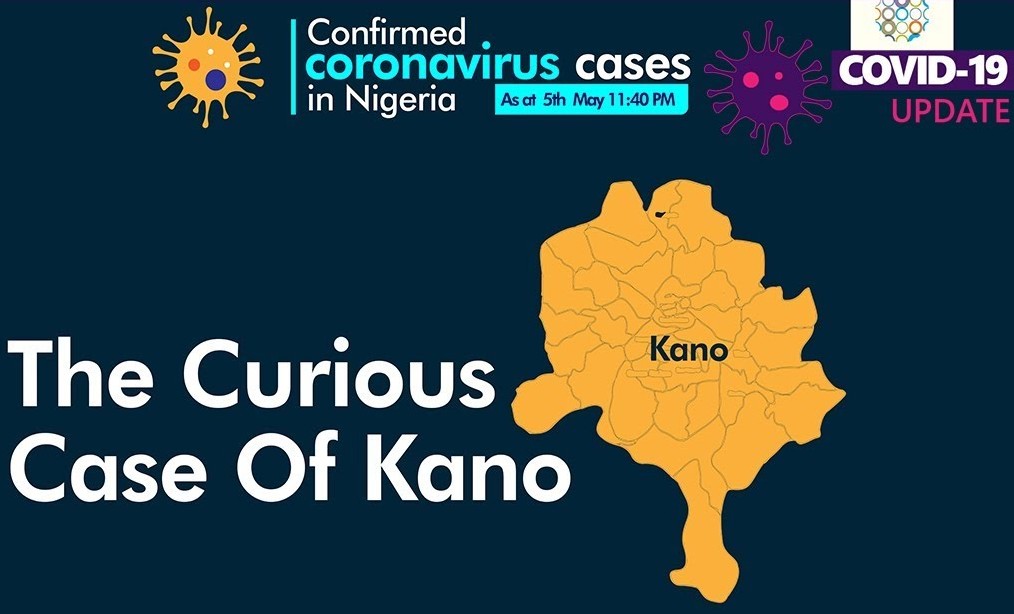

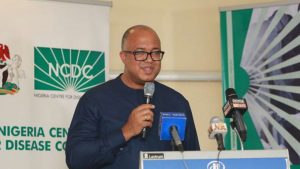


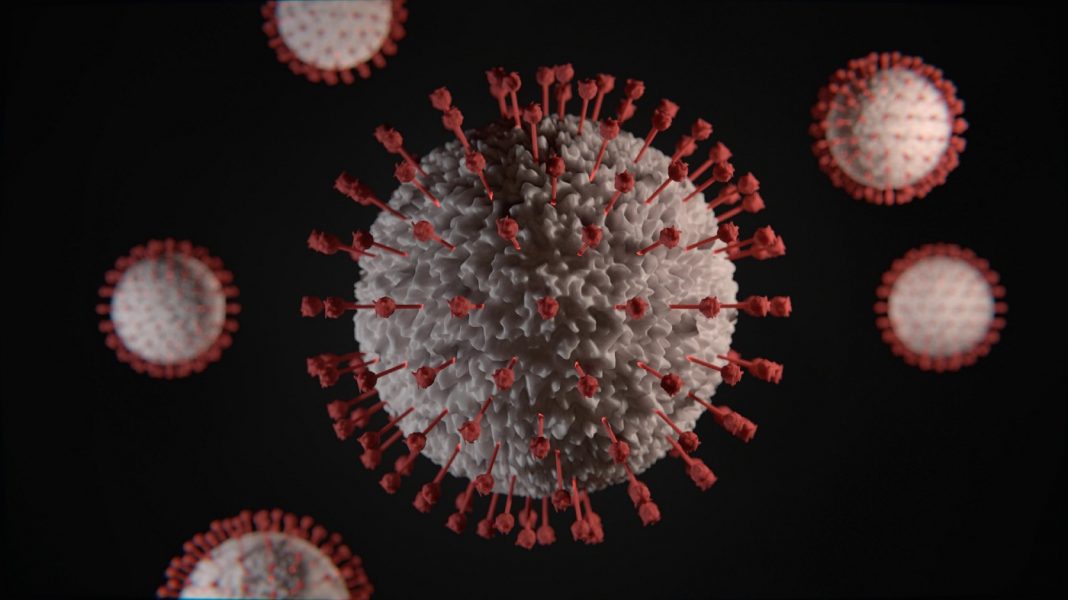

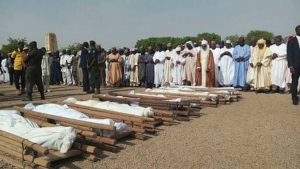



 Large crowds have been cited at many burial in the city as well as at condolences places where social distancing were not observed just as there are no precautionary measures in handling of the corpses in these burials.
Large crowds have been cited at many burial in the city as well as at condolences places where social distancing were not observed just as there are no precautionary measures in handling of the corpses in these burials.